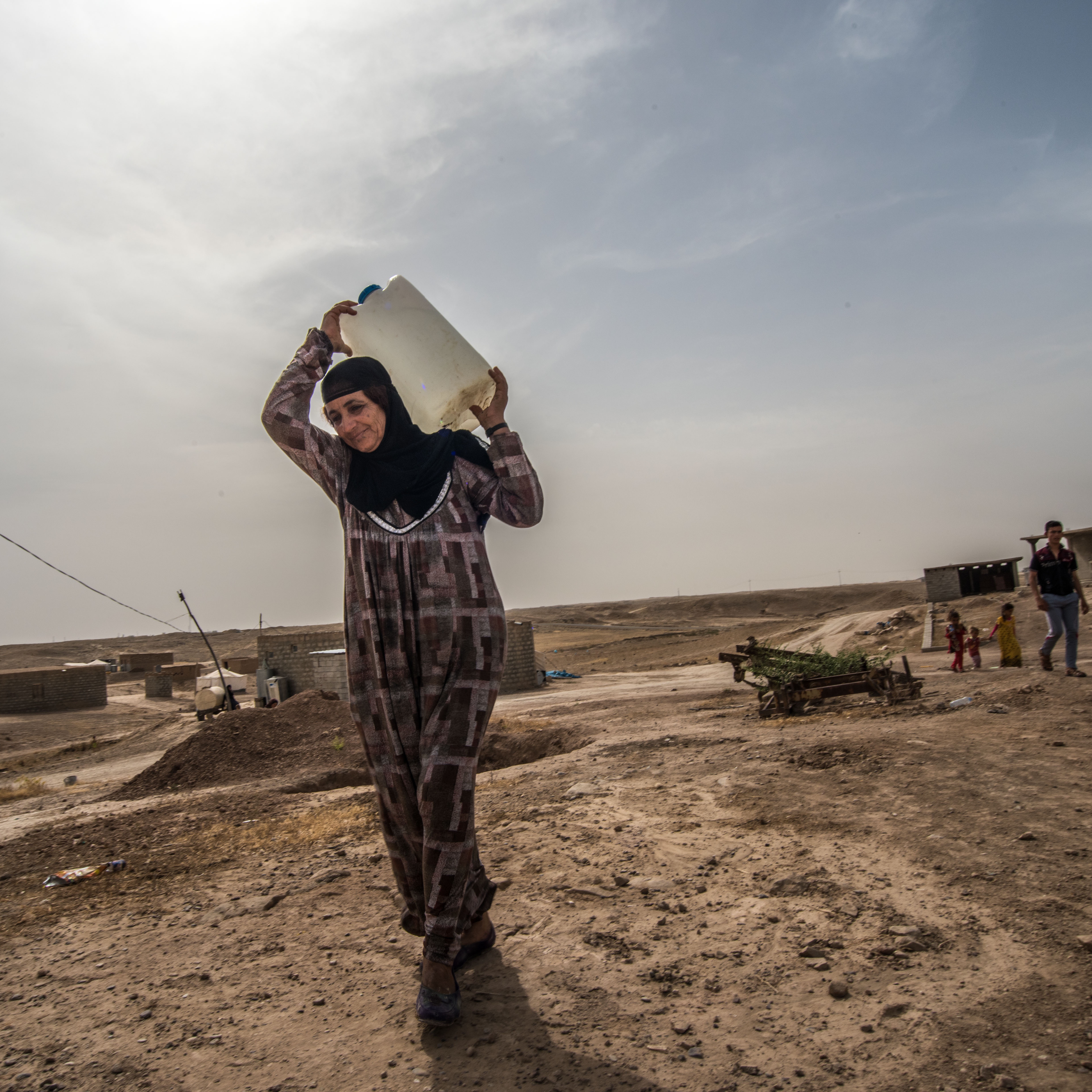Localization of Humanitarian Assistance

The international humanitarian system has long been criticized for marginalizing groups who are from crisis-affected areas, often referred to as “local” humanitarian actors. Historically, these local actors have received less than 3% of direct humanitarian funding, have been excluded from humanitarian decision-making and coordination mechanisms, have been treated as sub-contractors or vendors when partnering with international groups, and have often had their capacities called into question.
While there is still a lack of consensus about what “localization” means in practice, it generally refers to a loosely defined agenda to more systematically include local humanitarian actors in the international humanitarian system. It also includes reforms to center local leadership in humanitarian response.
Localization was made a part of the mainstream humanitarian reform agenda during the 2016 World Humanitarian Summit. Some people prefer the term “locally led humanitarian response” to “localization” and this agenda has some overlap with conversations about the decolonization of humanitarian aid.
This research program seeks to understand the enabling and hindering factors that support localized or locally led humanitarian responses to natural disasters, conflicts, and prolonged complex emergencies.
This research program includes the following research projects and outputs:
- A partnership with Save the Children Denmark, which produced case studies about the Horn of Africa and Indonesia, and a synthesis document.
- A partnership with Oxfam America, which produced three case studies focused on Colombia, Haiti, and Iraqi Kurdistan, as well as a broader analysis document.
- A partnership with the Bureau of Humanitarian Assistance of USAID to produce a landscape report, four country case studies, and a briefing paper on localization globally.
- A partnership with the Bureau of Humanitarian Assistance of USAID to examine structural inequality in humanitarian research spaces and identify humanitarian research institutions in the Global South.
- A keynote address to the Gates Foundation and a number of private U.S. foundations about localization after the World Humanitarian Summit.
- A collaboration with Save the Children to compile a database on the literature about the localization of humanitarian assistance.

Localization of Humanitarian Action: Four Country Case Studies
Four case studies that illustrate how key concepts related to the localization of humanitarian action differ across contexts.

Localization: A “Landscape” Report
This landscape study about localization examined the literature and spoke to over five dozen key informants from different perspectives, positions, and countries across the humanitarian sector.

Localization across contexts: Lessons learned from four case studies
This brief highlights similarities and differences between two studies on localization of humanitarian action and identifies lessons learned that may reach beyond specific emergencies in Indonesia and the Horn of Africa.

“We must be the pioneers” Perspectives on localization in the response to the 2018 Sulawesi earthquake in Indonesia
This study examined the impact of a policy that effectively localized aid during the response to the 2018 Sulawesi Earthquake in Indonesia.

Anchored in Local Reality: Case Studies on Local Humanitarian Action from Haiti, Colombia, and Iraq
This study reviews fundamental questions about the humanitarian localization discussion in three contexts: a region of Haiti recovering from a hurricane, displacement and political crisis in Iraqi Kurdistan, and the pressures of migration, conflict, and climate change in Colombia.

Anclado en la Realidad Local: Un Estudio de Caso Sobre Acción Humanitaria Local desde Colombia Un fragmento del informe Anclado en la Realidad Local: Estudios de cAso sobre Acción Humanitaria Local de Haiti, Colombia, é Irak
Por mucho tiempo, los críticos del sistemas humanitario internacional han llamado por una mayor inclusión de los actores y organizaciones locales en países afectados por diverso tipo de crisis con...

Ankre nan Reyalite Lokal: Etid Ka sou Aksyon Imanite ann Ayiti Yon ekstré Ankre nan Reyalite Lokal: Etid Ka sou Aksyon Imanité ann Ayiti, and Kolonbi ak ann Irak
Depi lontan, kritik sou èd imanitè entènasyonal yo sigjere li dwe pi enklizif pou aktè ki nan peyi kriz la touche. Yon atansyon ki pa sispann ogmante sou kesyon sa...

Views from the Ground: Perspectives on Localization in the Horn of Africa
This study interrogates the assumptions that underpin a localized response, and identifies the factors that enable and hinder local actors in providing a high-quality, principled, and effective response in three countries in the Horn of Africa: Kenya, Somalia/Somaliland, and South Sudan.
The Localization of Humanitarian Research Webinar
The current structure of humanitarian research systems marginalizes Global South institutes. However, a recent study has shown that southern-led research has a number of comparative advantages, including an emphasis on...
